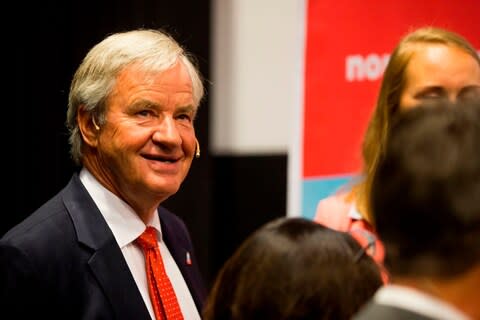Norwegian scraps more transatlantic routes, blaming 737 MAX

Norwegian has announced it will cut all flights between Ireland and Northern America from September – just five months after it launched a new route from Dublin to Canada.
The airline will cease to fly from Dublin, Cork and Shannon to the US and Canada after September 15.
It said the routes are “no longer commercially viable”, blaming lack of demand and the global grounding of 737 MAX aircraft – of which it has 18 in its 170-strong fleet.
“We take a strict approach to route management and constantly evaluate route performance to ensure we meet customer demand,” said Matthew Wood, senior vice-president for long-haul commercial.
“Compounded by the global grounding of the Boeing 737 MAX and the continued uncertainty of its return to service, this has led us to make the difficult decision to discontinue all six routes from Dublin, Cork and Shannon to the US and Canada.”

The 737 MAX is currently undergoing intensive testing and evaluation by both its Seattle-based manufacturer and the Federal Aviation Administration (FAA), in the wake of two crashes – one in Ethiopia in March, the other in Indonesia last October – which claimed hundreds of lives. Investigations into both crashes are still ongoing.
The cancelled flights linked Ireland directly with New York (New York Stewart Airport), Rhode Island (T.F. Green International Airport) and Hamilton (John C. Munro Hamilton International Airport, near Toronto).
Passengers booked to travel on the routes will be contacted by Norwegian, which has pledged to re-route them onto other non-direct services. “Customers will also be offered a full refund if they no longer wish to travel,” said Wood.
“We will continue to offer scheduled services from Dublin to Oslo, Stockholm and Copenhagen as normal.”

Since all Boeing 737 MAX aircraft were grounded in March, the airline has been hiring alternative aircraft for its Ireland-North America services.
“However, as the return to service date for the 737 MAX remains uncertain, this solution is unsustainable,” said Wood.
“We are proactively engaging with our pilots and cabin crew at our Dublin base, including their respective unions, to ensure that redundancies remain a last resort.”
What's next for Norwegian?
In 2014, the airline introduced the first low-cost transatlantic flights from just £125 one-way – shaking up more established airlines' grip on the market. Norwegian now flies from London Gatwick (where it is the airport’s third-largest airline) to 12 US destinations – as well as other long-haul hubs such as Buenos Aires and Rio de Janeiro.
The airline serves 30 destinations in total from the UK, including around Europe.
The now-defunct flights from Dublin, Cork and Shannon to the US East Coast were launched in 2017, with the Dublin-Canada service added in April 2019.
As Norwegian’s flight network grew, it was hailed as a key player in the ‘low-cost revolution’ – however, in recent months the airline's outlook hasn't been quite so rosy. It reported a £130m loss for 2018, and in April posted further losses of £130m for the first quarter of 2019.
In autumn 2018, it began scaling back its transatlantic ambitions, cutting all flights between Scotland and the US, swiftly followed by Belfast-US.
In January, it also axed Gatwick-Singapore, as well as frequency on various European routes – including Palma-Copenhagen, Rome-Helsinki, and Tenerife-Madrid.
When WOW Air, its closest low-cost competitor, collapsed with huge debts in March this year, attention turned to Norwegian – just as it revealed those losses. In March, it raised £120 million through a share sale and aircraft sales, but aviation experts have questioned its stability.
“The jury is out on Norwegian,” Samuel Engel, head of aviation at ICF consulting, told Telegraph Travel at the time. “On the one hand it is highly exposed to a competitive market and has limited access to corporate traffic, but on the other it does have connecting networks and some intra-European business to balance its portfolio.”
Last month, Bjørn Kjos – the airline's boss of 17 years – stepped down, to be be replaced on an interim basis by finance chief Geir Karlsen.
Inspiration for your inbox
Sign up to Telegraph Travel's new weekly newsletter for the latest features, advice, competitions, exclusive deals and comment.

